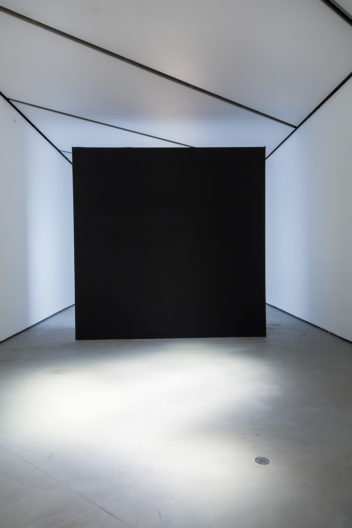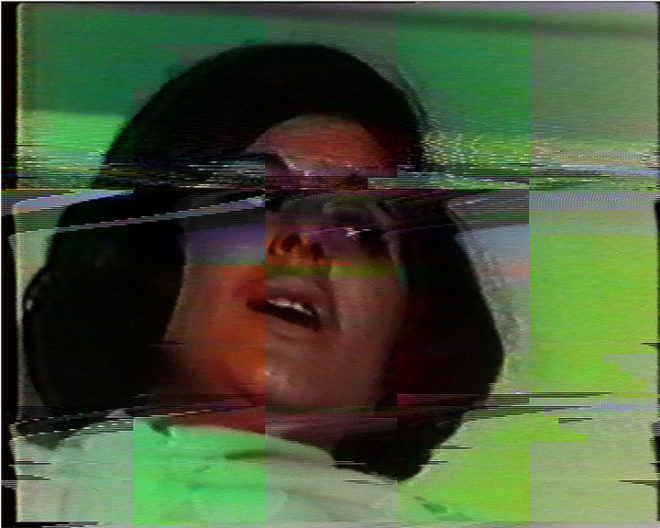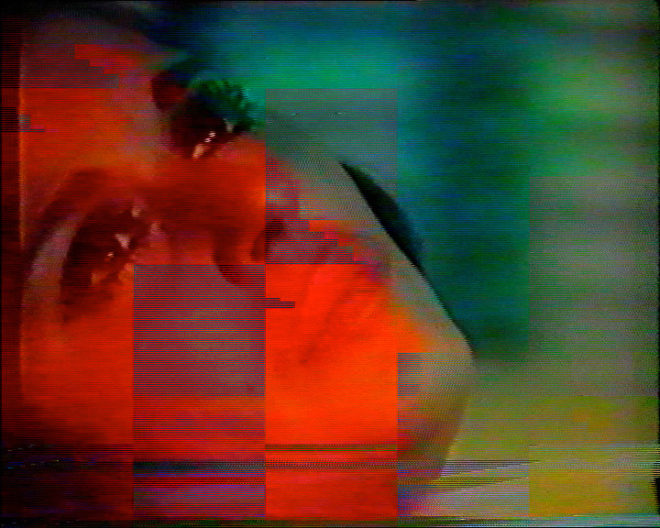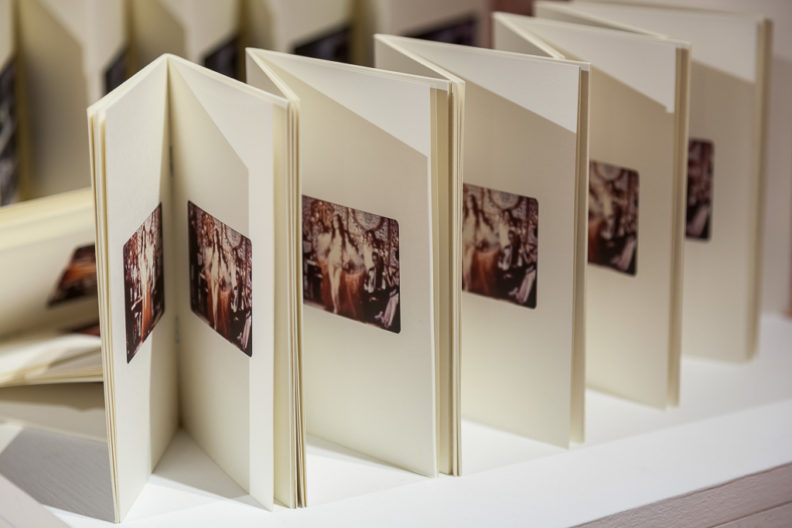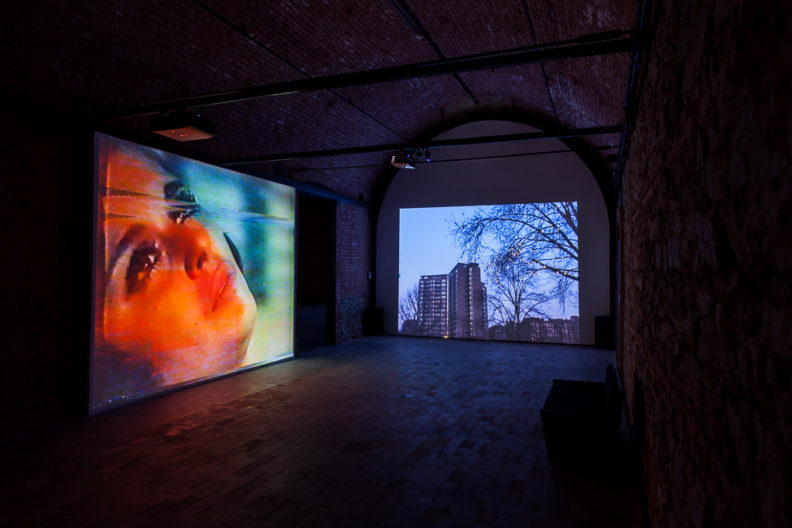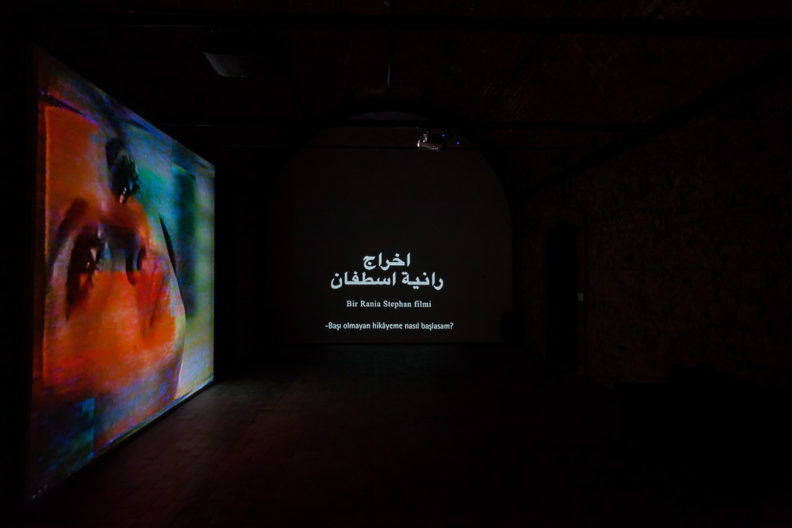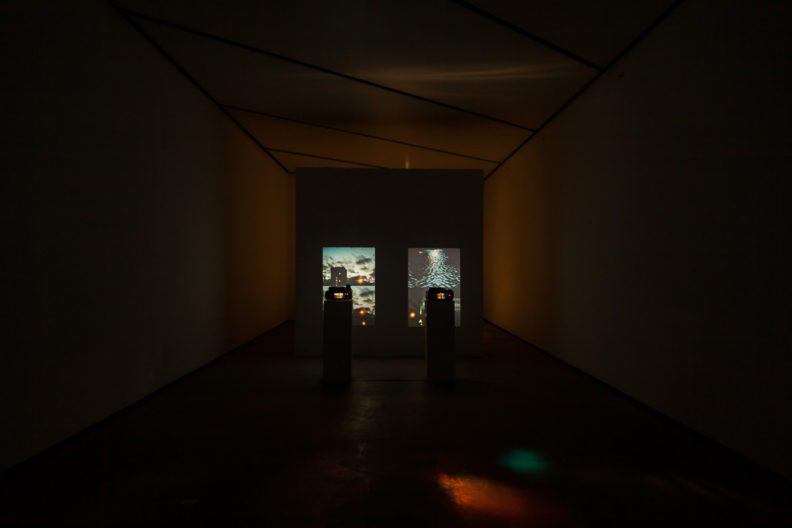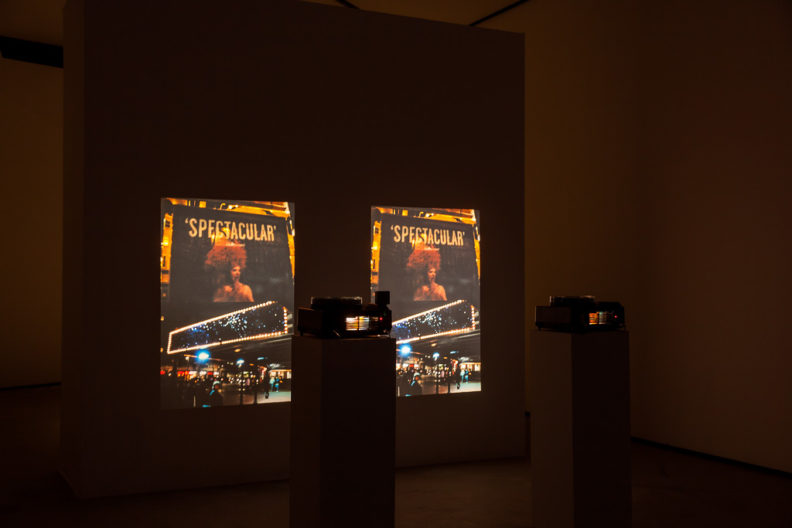RANIA STEPHAN
Opening reception: Thursday, December 15, 2016, 19:00-21:00
Exhibition dates: December 15, 2016–February 5, 2017
Opening hours: Tuesday–Saturday, 13:00-21:00; Sunday, 11:00-19:00
Protocinema presents films and photographs by Rania Stephan at Alt Art Space. . For her first solo show in Turkey, Stephan will show her major body of work on the life and times of Egyptian movie star Soad Hosni, 1943-2001. Stephan addresses representations of women and the impact of images on shaping societies through reflections on the legacy of Hosni and her mysterious death in London in 2001.
At the center of the exhibition is The Three Disappearances of Soad Hosni, 2011, a 70-minute film entirely made up of footage from Soad Hosni’s filmography, spanning from 1959 to 1991. Stephan’s meticulous selection and weaving of images corresponds with a thorough re-organization of sounds, putting Hosni and her many cinematic guises in the position of narrator for the star’s own life and death. Likewise, Still Moving, 2016, extends a 10-second shot of Hosni’s face into an 11-minute sequence, foregrounding the granular texture and slowly flickering imperfections of the source--a VHS tape--against a face that preserves its beauty, even in agony. Together, the two works become relics of Hosni’s personal transformation and the political, social, and cultural shifts in Egypt. They also inquire how emotions can cross between the personal and the collective, probing the simultaneity of “a personal passion” with one that “[Stephan] shared with so many different people.”[1]
The departure point for the photographic series, 64 Dusks, 2016, is the artist’s visits to the site of Hosni’s death in London in an attempt to “realize the film [Stephan] couldn’t make.”[2] Regardless of her location in the city, the diptychs in 64 Dusks reveals juxtapositions of sites/sights that she encountered, as the day ends and the night falls, the exact time of the day when Hosni committed suicide on June 21, 2001. On the other hand, the identically titled video, 64 Dusks, 2013, shows different footage taken from a moving vehicle of the same apartment block where the star leapt to her death. Through this repetitious act, the irretrievability of any clues about her passing becomes more palpable, and weighs against the insistent gaze of the artist. In a way, Hosni returns this gaze at one point as she is seen beaming while holding a camera in Who Else Could It Be, 2016; the found photograph remains a silent witness of a complex network of relationships that include Stephan and her Lebanese gallerist. Through Stephan’s work, many faces and scripted lines of the Egyptian star become larger than life, and hint at revolutions and counter-revolutions unfolding in the Middle East today.
Rania Stephan (b. 1960, Lebanon) is a filmmaker and artist based in Beirut. She recently held a solo exhibition, On Never Being Simply One, at Marfa Projects, Beirut in 2016. A selection of her screenings includes: Home Works 6 & 7, Beirut, 2013 and 2015; Sharjah Art Foundation Biennale Film Program, 2015; Berlinale Forum Expended, 2015; Zawiya, Cairo, 2015; < strong >Parle Pour Toi, Marian Goodman Gallery, Paris, 2014; Institute of Contemporary Arts (ICA) London, 2014; British Film Institute, London, 2014; DokuArts, Berlin, 2014; On the Edgware Road, Serpentine Gallery, London, 2013; Sharjah Biennial 10, 2011, National Gallery Sydney, 2013; International Film Festival Rotterdam, 2012; dOCUMENTA 13: Cairo Seminar, Cairo, 2012; Chicago International Film Festival, 2012; MoMA PS1, New York, 2011; Serpentine Gallery, 2011; Ashkal Alwan, Beirut, 2011; LUMA Awards, Arles Festival, 2011; Lebanese Pavilion, 53rd Venice Biennale, 2009; Paris Cinema Festival, 2007. The first part of her trilogy, Memories for a Private Eye, was released in 2015; she is currently working on parts two and three.
Stephan holds a BA Cinema Studies, Latrobe University, Melbourne, Australia and MA Cinema Studies, University of Paris VIII, Nanterre, France. Stephan’s work is in the collection of the Museum of Modern Art, New York and the Fondation Louis Vuitton, Paris.
[1] Rania Stephan, quoted in Elizabeth Stoney, “Life on Screen: Rania Stephan,” ArtAsiaPacific 79 (July-August 2012), accessed October 24, 2016.
[2] Artist statement on Who Else Could It Be, 2016.
